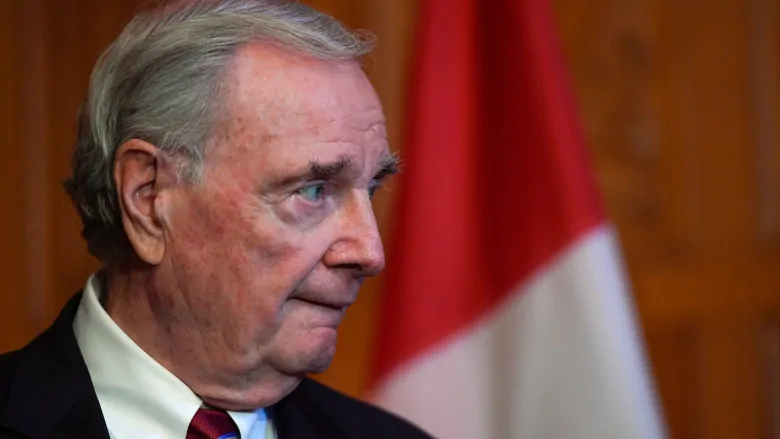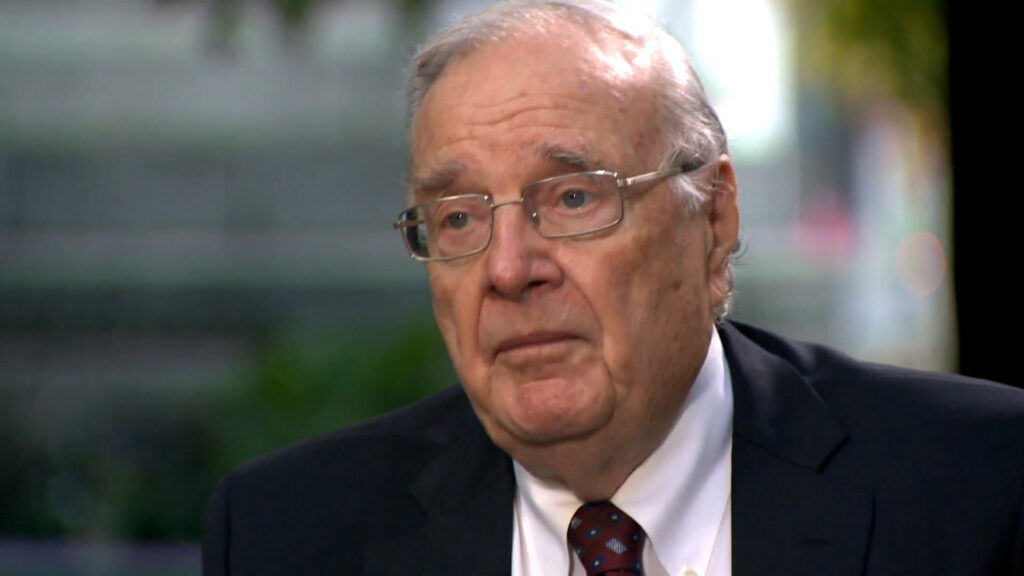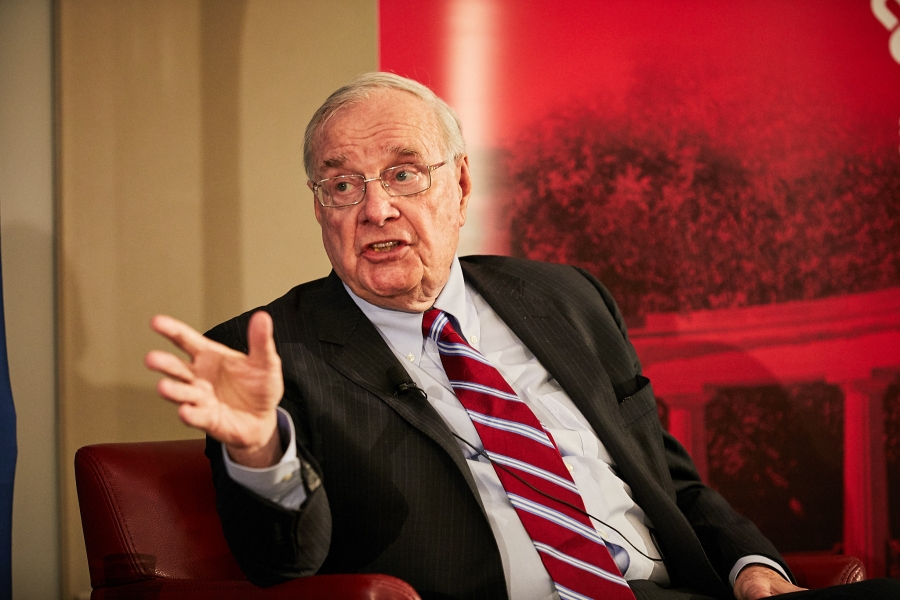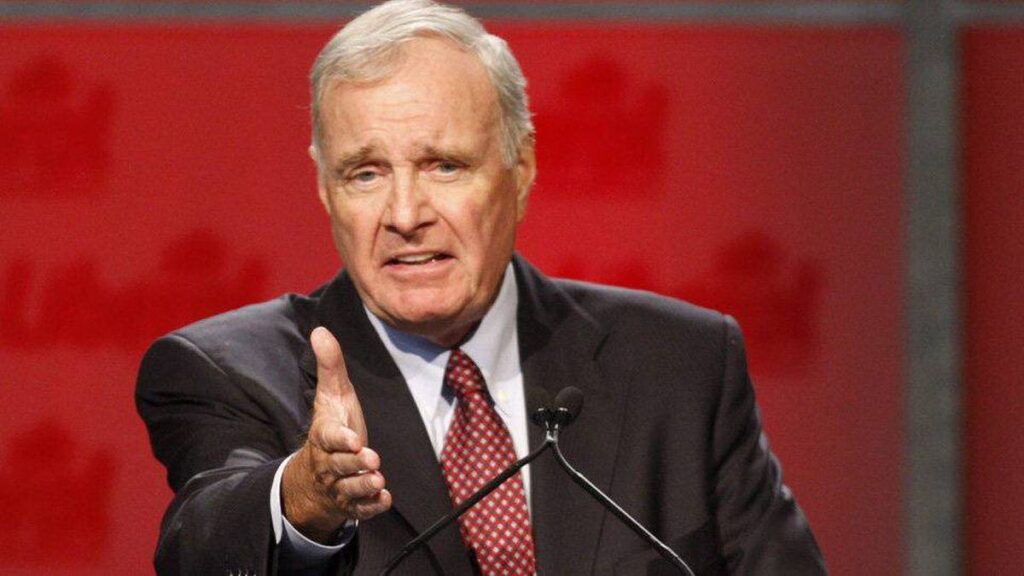Paul Martin, a prominent Canadian politician and businessman, has left an indelible mark on the political landscape of Canada. Born on August 28, 1938, in Windsor, Ontario, Paul Edgar Philippe Martin has had a distinguished career marked by his contributions to both the private sector and public service.

Martin’s early life was steeped in privilege and responsibility. His father, Paul Martin Sr., was a noted politician who served as a cabinet minister in the Canadian government. This familial exposure to politics likely played a pivotal role in shaping Martin’s future. He pursued his education at the University of Toronto and later at the University of Ottawa, where he earned a degree in philosophy and law, respectively.
Paul Martin’s Illness
Paul Martin, the former Prime Minister of Canada, faced a challenging health journey when he was diagnosed with Hodgkin’s lymphoma. Hodgkin’s lymphoma is a type of cancer that originates in the lymphatic system, affecting the body’s immune system. Martin’s diagnosis came in 2004 when he was still in office, adding a personal struggle to his responsibilities as a political leader.

Hodgkin’s lymphoma is characterized by the presence of Reed-Sternberg cells, abnormal cells found in the lymph nodes. Martin underwent a rigorous treatment regimen, including chemotherapy and radiation therapy, to combat the cancer cells and promote remission. Throughout this period, Martin displayed resilience and determination, balancing his public duties with private health battles.
The diagnosis and subsequent treatment brought attention to the importance of health awareness, even among prominent figures. Martin’s openness about his illness helped destigmatize discussions around cancer and showcased the strength required to face such challenges publicly. Ultimately, Paul Martin successfully navigated his health crisis, contributing to the broader conversation about the intersection of personal well-being and public life.
Martin’s Foray Into The Business World
Martin’s foray into the business world began when he joined Canada Steamship Lines, a shipping company founded by his family. Under his leadership, the company expanded its operations significantly, cementing Martin’s reputation as a capable and astute businessman. However, his interests were not confined to the boardroom; political ambitions beckoned.

In 1988, Martin made the transition from business to politics, successfully winning a seat as a Member of Parliament (MP) for the Liberal Party. His political acumen and financial expertise did not go unnoticed. He was soon appointed as the Minister of Finance under Prime Minister Jean Chrétien in 1993.
Martin’s Tenure As Finance Minister
Martin’s tenure as Finance Minister was marked by a commitment to fiscal responsibility and economic reform. He implemented policies that aimed at reducing the federal deficit, a move that earned him praise for his financial stewardship. His efforts were instrumental in transforming Canada’s economic landscape, leading to budget surpluses and a strengthened economic foundation.
The culmination of Martin’s political career came when he succeeded Jean Chrétien as the 21st Prime Minister of Canada in 2003. His leadership, however, faced challenges, both domestic and international. Martin grappled with issues such as healthcare reform, national unity, and Canada’s role in international affairs. Despite the complexities, he remained dedicated to his vision of a prosperous and inclusive Canada.
Martin’s Significant Accomplishments
One of Martin’s significant accomplishments was the Kelowna Accord, a landmark agreement aimed at addressing the socio-economic disparities faced by Indigenous peoples in Canada. The accord reflected his commitment to reconciliation and social justice. However, Martin’s time as Prime Minister was relatively short-lived, as his party faced defeat in the 2006 federal election, paving the way for Stephen Harper to assume office.

Post-politics, Paul Martin continued to contribute to public discourse and global issues. He founded the Martin Aboriginal Education Initiative, focusing on improving educational outcomes for Indigenous students. Additionally, he has been involved in various international initiatives, advocating for debt relief for developing nations and addressing global challenges such as climate change.
Summary
In summary, Paul Martin’s legacy is one of multifaceted contributions to Canada. His journey from the corporate world to the political arena exemplifies a dedication to public service and a commitment to improving the lives of Canadians. Whether through economic reforms, Indigenous rights advocacy, or global initiatives, Martin has left an enduring impact on the fabric of Canadian society.
Related Stories:
- Ryan Sutter Illness: Battle With Lyme Disease And Serious Medical Issues Of Famous TV Personality In 2023
- Angie Stone Illness: Type 2 Diabetes Diagnosis and Other Absolute Medical Issues Of Famous In 2023